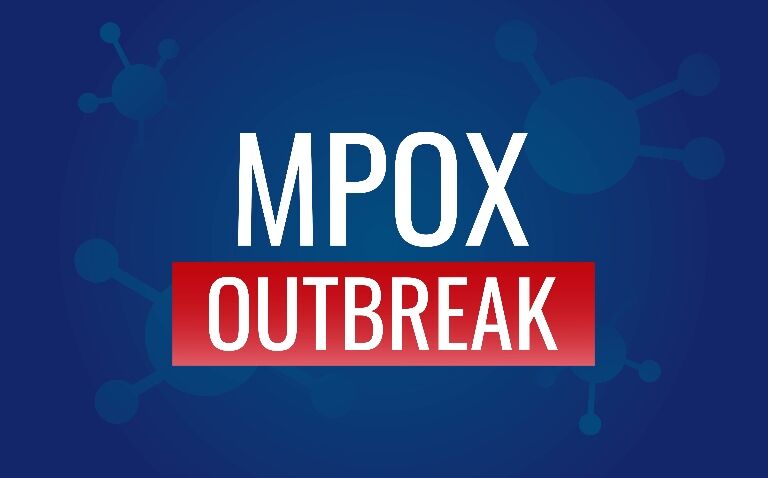Updated guidance advising clinicians to be aware of and prepare for a new and more fatal variant of mpox, currently spreading in parts of central and east Africa, has been issued by the UK Health Security Agency (UKHSA).
A UKHSA warning, issued on 15 August, comes a day after the World Health Organization (WHO) declared the current mpox outbreak a global public health emergency.
There are particular concerns over the new Clade I variant of the disease (Clade I MPXV) that has a high fatality rate.
The UKHSA is therefore urging all NHS primary care, urgent care, sexual health services, paediatrics, obstetrics and emergency departments to ensure the latest guidance is understood and actioned.
UK clinicians should be aware of the risk of mpox exposure where there is a travel history to Democratic Republic of the Congo (DRC), Republic of the Congo, Central African Republic, Burundi, Rwanda, Uganda, Kenya, Cameroon and Gabon, UKHSA said.
There may also be a risk associated with Angola, South Sudan, Tanzania and Zambia.
All laboratory-confirmed Clade I MPXV cases should be managed as a high consequence infectious disease (HCID), it added.
Public health emergency of international concern
WHO director-general Dr Tedros Adhanom Ghebreyesus said that an upsurge of mpox in the DRC and a growing number of countries in Africa ‘constitutes a public health emergency of international concern’.
The announcement came after an emergency committee met to review data from affected countries and concluded it could spread to further countries in Africa as well as outside the continent.
‘A co-ordinated international response is essential to stop this outbreak and save lives,’ Dr Tedros said.
The previous mpox outbreak in 2022 was caused by a milder version of the infection – known as Clade II. The current concern is over the spread of Clade I or, more specifically, a variant called Clade Ib, which was first noted in September and has spread rapidly.
Since the start of the year, there have been more than 15,600 cases of mpox in the DRC, with at least 537 deaths, WHO said.
In the past month, over 100 laboratory-confirmed cases of Clade Ib have also been reported in Burundi, Kenya, Rwanda and Uganda for the first time.
So far, no case of the new variant has been detected in the UK, but Sweden reported the first case in Europe on 15 August in a patient who had travelled from the affected region. This is the first case to have been detected outside Africa.
Strengthened mpox guidance to the NHS
In new strengthened guidance to NHS providers, the UKHSA has now urged providers ‘to ensure there is a clinical pathway for isolation and management of suspected Clade I MPXV cases within their setting’.
The UKHSA update said: ‘Individuals with clinically suspected mpox presenting to acute care settings who meet the case definition for possible Clade I MPXV infection should be isolated and managed as a HCID as outlined in the National Infection Prevention and Control Manual.’
Providers of NHS services are also advised to ‘ensure that they have adequate stocks of appropriate personal protective equipment (PPE)’ and that ‘relevant staff are trained in its use for the assessment and treatment of patients presenting with suspected MPXV infection’.
‘Clinicians should be alert to the possibility of Clade I MPXV infection in patients presenting with suspected mpox where there is a link to the specified countries in the African region,’ the DHSC said.
‘Healthcare professionals should remain vigilant for Clade I MPXV, including in sexually acquired mpox cases, and should obtain comprehensive travel histories from patients,’ the guidance said.
Addressing mpox risks in the UK
The previous mpox outbreak in the UK in 2022 saw more than 3,700 confirmed cases in the UK. Vaccination was offered to gay, bisexual and other men who have sex with men (GBMSM) who were at the highest risk of infection.
Dr Meera Chand, deputy director at UKHSA, said: ‘The risk to the UK population is currently considered low.
‘However, planning is underway to prepare for any cases that we might see in the UK.
‘This includes ensuring that clinicians are aware and able to recognise cases promptly, that rapid testing is available, and that protocols are developed for the safe clinical care of people who have the infection and the prevention of onward transmission.’
Dr Brian Ferguson, associate professor of immunology at the University of Cambridge, said: ‘The situation is concerning because of the spread of the Clade Ib virus, which is considered to cause more severe disease, and because there are many children being infected in DRC during this new outbreak. 40% of cases are in children under five years old.’
He added that even though there are existing effective vaccines, there are not enough doses and they are not being getting to where they are needed.
‘The WHO is attempting to address these issues, but this requires greater international effort to produce and deliver vaccines,’ he said.
Earlier this year, the UKHSA brought attention to rising pertussis cases after repeated warnings from public health officials about falling uptake of maternal pertussis vaccination.
And in June, public health officials warned that cases of dengue fever in Europe were continuing to rise as climate change creates favourable conditions for invasive mosquitoes.
A version of this article was originally published by our sister publication Pulse.










